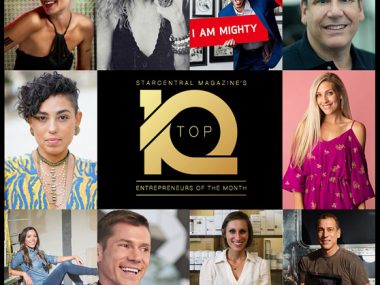Lisa Wise is the CEO of Flock DC (Chief Flockster), a family of service companies with an innovative approach to real estate management and preservation.
Over the last 25 years, her professional experiences have all been anchored in empowering individuals as consumers, building stronger communities, and creating forward-thinking businesses. Growing up surrounded by love but short on resources, she sought security by building businesses from a young age, starting with her first enterprise, The Sherlock Holmes Detective Agency in her parents’ backyard shed.
In 2008 Lisa made a radical career change from the non-profit world to running a small boutique property management company. Today she owns a family of companies, employs over 50 people and her company manages 1.5 billion in residential real estate in Washington, DC. They do all of this while being a great place to work for and having a valuable role to play in contributing to the community. Her leadership style is about empathy, humility, and a fierce passion for justice. With her country amid a global pandemic, an economic crisis, and widespread protests for racial justice, she’s trying to step into this moment with bold and unapologetic leadership, personal sacrifices, and a commitment to caring for her team members and her community.
StarCentral Magazine recently caught up with Lisa to discuss her journey as an entrepreneur and here’s what went down:
What are you currently doing to maintain/grow your business?
We are doing all we can to stay relevant, valued, and visible. We provide a residential rental management service. If a client or prospective client is looking for ways to trim monthly expenses – we’re low hanging fruit. But during COVID, we fine-tuned our systems, added new services, offered wellness checks for residents and virtual inspections, and maintenance. We’ve held town halls on the state of the industry, the economy, and the community every quarter. We’ve quadrupled our social media content, hosted fundraisers for front line workers, and volunteered our offices to be a “rest and recharge stop” during Black Lives Matter protests. We also launched a more aggressive ad campaign targeting clients that might want to switch management companies. This new business requires no physical interactions and people have more flexibility and bandwidth to make overdue changes to their management company.
What social media platforms do you usually use to increase your brand’s awareness?
We use all the channels but we use each one a bit differently. Our Insta presence is all about the gorgeous homes we’re marketing. Facebook is anchored in neighborhood and city news, politics, and more. It’s conversational but informational. And it’s NEVER about our industry. Because let’s face it – property management sounds dull as hell.
What is your experience with paid advertising, like PPC or sponsored content campaigns? Does it work?
Paid advertising is easier to track in real-time with Facebook/Insta or Twitter. When we run ads on popular blogs, it can take weeks to get performance metrics. I suspect we break even when doing a cost-benefit analysis – but we’re also building more visibility for our brands which can’t be quantified as easily. Typically – the advertising spend for us is less attractive than supporting organizations that can fall in love with our values and become clients or residents down the line.
What is your main tactic when it comes to making more people aware of your brand and engaging your customers? How did your business stand out?
We want everything about our brand to be attractive. From stylish language to stylish intriguing logos to stylish spaces. We’re compelling people to tie themselves to our family of companies. It’s a stretch goal for a property management company to act like and deliver a lifestyle experience, but that’s just what we’ve managed to do. From sponsoring large-scale public murals with the iconic Ruth Bader Ginsberg – to hosting fundraising events for grassroots non-profits – we do everything with purpose and authenticity. It keeps our clients engaged and our residents anchored.
What form of marketing has worked well for your business throughout the years?
We find the most impactful marketing dollar we spend isn’t marketing spend at all. Instead, we’ve built a philanthropy division that supports local organizations, artists, and endeavors that add value to our community. We’ll sponsor events, promote programs, volunteer time, space and resources as early and as often as we can. These philanthropic partnerships and activities increase our visibility and underscore the value of our purpose-driven mission as a company.
What is the toughest decision you had to make in the last few months?
Furloughs. To keep my field team safe, honor public health, and stay solvent, we needed to furlough seven team members. Even though we offered each a soft and supportive landing, it was a heartbreaking decision.
What money mistakes have you made along the way that others can learn from (or something you’d do differently)?
We needed a larger reserve. We’ve prioritized profit sharing and investments in capital assets over building a substantial cash reserve. The contractual nature of the business insulates us from starvation – but not from the hunger that COVID generated. We’ve made massive spending/expense adjustments and we’re trending toward the safety net any future coronacoaster might lean on.
What new business would you love to start?
I dream of bringing skilled tradespeople into urban areas without necessitating people move or adjust to the higher cost of living in cities like DC. We can host exceptional co-living spaces and offer rotating schedules for in-residence technicians. They can work 3 weeks on 2 weeks off or other novel rotations that give them DC salaries without DC cost of living and lifestyle. I would also like to pair this program with an apprentice opportunity for returning citizens, young people eager to learn trades, and more. Not everyone is college-bound, but that shouldn’t limit opportunities and the chance to build wealth.
If you could go back in a time machine to the time when you were just getting started, what would you do differently?
I don’t think I made any mistake that wasn’t worth it in the long run.
What is the best advice you have ever been given?
I had a mentor who reminded me that you can have 100 conversations that seem fruitless. Then, over time, each of those connections will start to blossom somehow. I’ve gotten calls back from folks I met with a decade ago. When pitching or promoting anything you are passionate about, there is never a wasted moment.
What advice would you give to a newbie Entrepreneur setting up their first business?
Enjoy the early adrenaline rush. Don’t throw others under the bus. Don’t be afraid to say no. Wear your values on your sleeve.













